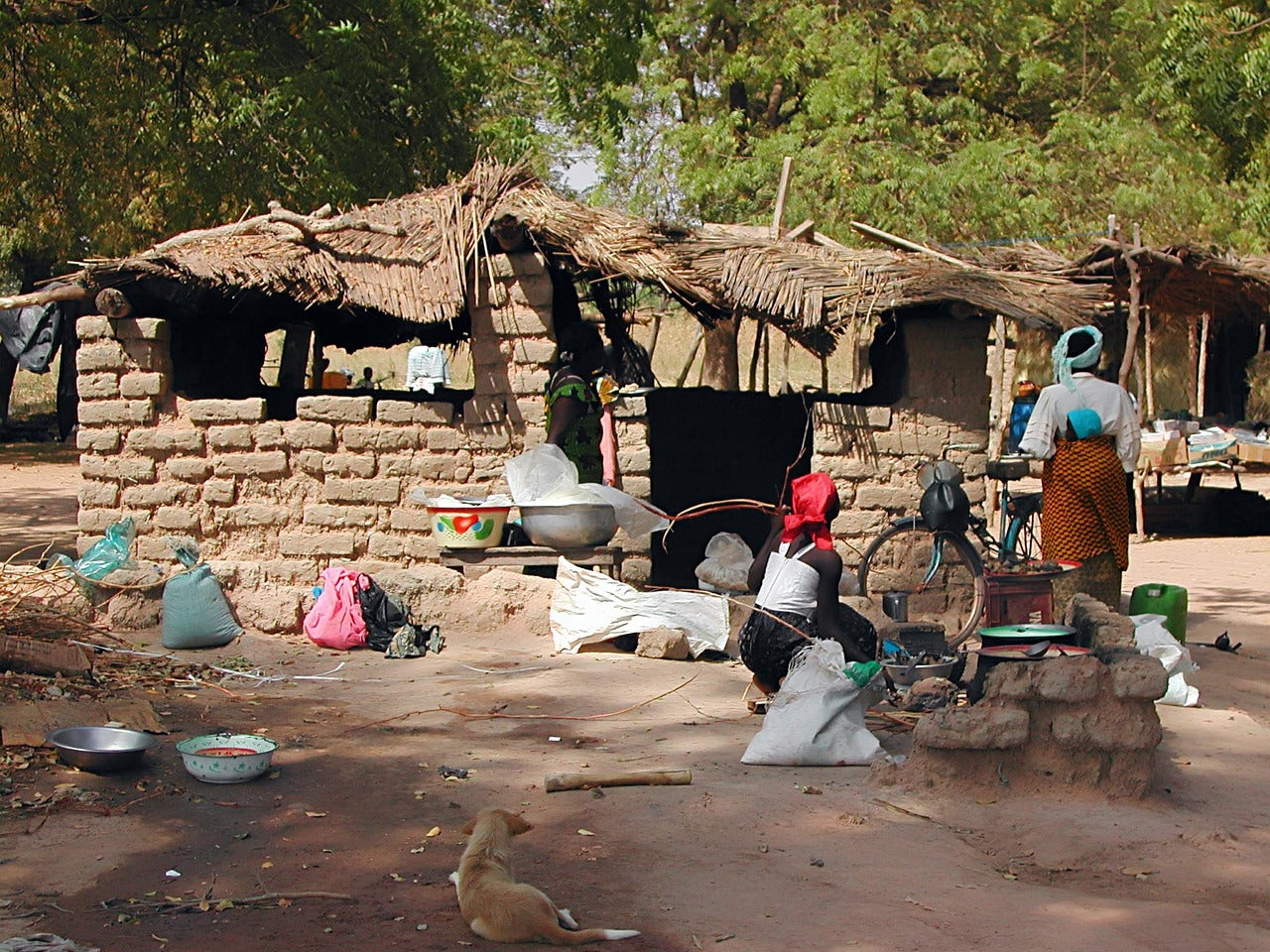
Protecting vulnerable populations
Conflict zones present major humanitarian challenges that require an urgent and efficient response from NGOs. One of the first challenges is to obtain safe and unhindered access to affected populations. Armed conflicts often make this access difficult because of fighting, checkpoints or restrictions imposed by the warring parties.The safety of humanitarian workers is also a major concern. They are sometimes exposed to high risks of violence, kidnapping or threats, which requires specific protection measures. In financial terms, humanitarian crises require considerable resources. The unpredictable nature of conflicts can make it difficult to mobilise funds over the long term, thereby compromising the continuity and effectiveness of aid programmes. Beyond emergency aid, it is also crucial to strengthen the resilience of affected populations in a sustainable way.
A major battle
Water at the heart of conflict concerns
In the context of conflict, particularly armed conflict, access to drinking water can be seriously compromised, exacerbating the suffering of populations that are sometimes already vulnerable. Water supply infrastructures, such as distribution systems, wells, treatment plants and pipe networks, are often damaged or destroyed. This leads to a shortage of water and makes it difficult for the populations affected to meet their basic needs in terms of hygiene, health and hydration. Access to clean water is essential to prevent the spread of water-borne diseases, such as diarrhoea, cholera and dysentery, which can spread rapidly in the precarious and overcrowded living conditions of displaced persons' camps or refuge areas. These diseases can worsen the humanitarian situation by increasing mortality rates, particularly among children and the elderly.
-
WATER AS A STRATEGIC WEAPON
Warring parties can use water control as a weapon to weaken their opponent, by blocking, contaminating or destroying water sources.
-
DESTRUCTION OF WATER NETWORKS
Water supply infrastructures are destroyed or damaged, leading to water shortages and an inability to meet basic needs.
-
WATER STRESS SITUATION
The influx of refugees means that the water networks are overstretched, no longer able to meet physiological needs, and this is fuelling tensions.
-
INCREASED SOCIAL TENSIONS
Water scarcity leads to local conflicts around water points, exacerbating social tensions and the risk of violence, which further increases vulnerability.
-
POPULATION DISPLACEMENT
Conflicts are largely responsible for the displacement of populations, forcing families to flee their region or country without security or vital resources.
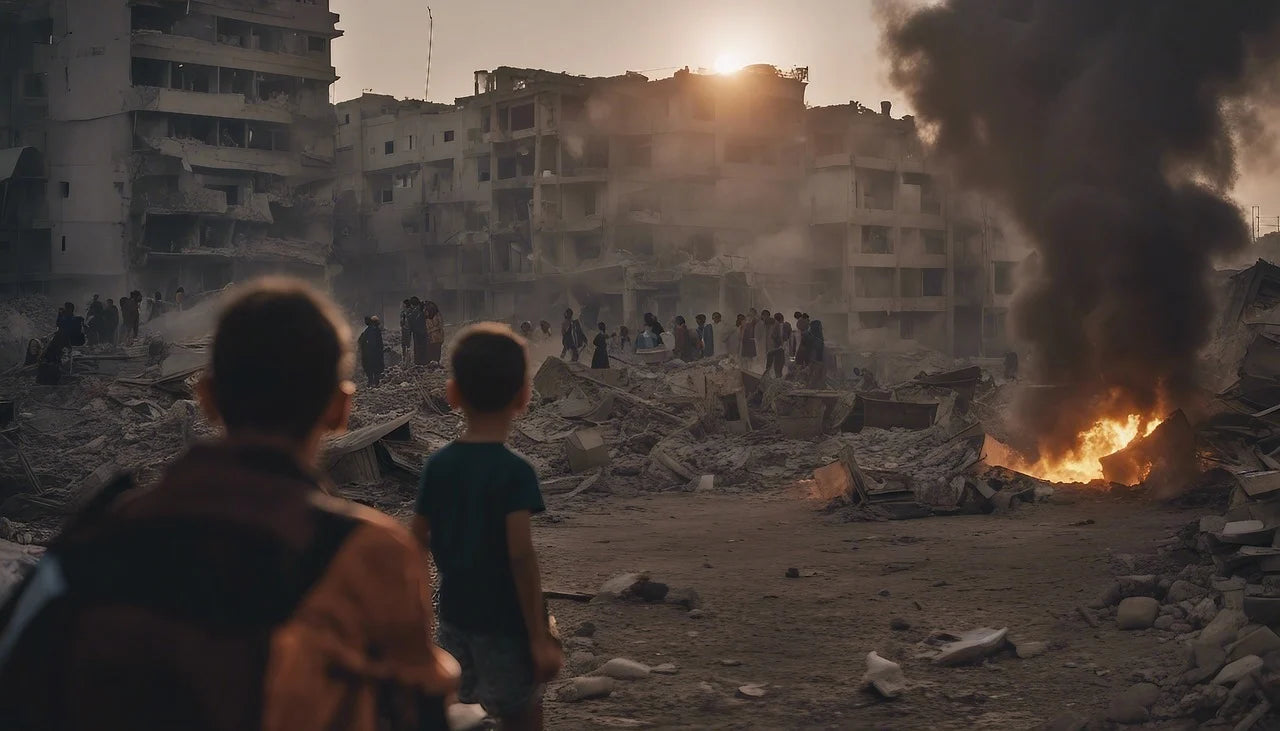
Ban Ki-moon, former Secretary-General of the United Nations
"Water is a matter of life and death. Water conflicts can erupt and spread rapidly, with devastating consequences for people and nations."

ORISA® water purifier
✔️ Manual ultrafiltration or massive
✔️ Robust, discreet system: 42cm
✔️ 3L/min and 180L/heure
✔️ 20,000L of water per ultrafiltration membrane
✔️ LOG 8 - 99.999999% efficiency: bacteria and protozoaires
✔️ LOG 5 - 99.999% efficiency: virus
✔️ Turbidity peaks eliminated from 1 to 250 NTU
TENSIONS AND CONFLICTS
Supporting humanitarian issues with security and efficiency when it comes to access to clean water
-
APPROPRIATE AND STRATEGIC ROUTING
Our water filtration equipment can be deployed in conflict zones by air, where roads are impassable or unsafe, by sea or river, by boat or pirogue depending on accessibility, or by road in lorries, pick-ups, motorbikes, etc., depending on the number of units. They are less bulky and consume less energy than water trucking watertrucking, (bulk water treatment) or chlorination solutions. Their light weight makes them ideal for transporting to the point of conflict, as well as for individual mobility.
-
SMALL SIZE FOR LARGE VOLUME OF WATER
In conflict situations, large numbers of people, sometimes tens or even hundreds of thousands, need to be cared for. Providing drinking water on such a massive scale is a real challenge. Our water purifiers make it possible to produce healthy water over the long term without the need for regular supplies. The vital needs of these vulnerable populations can then be taken care of.
-
DISCRECTION AND ROBUSTNESS
One of the challenges of humanitarian aid in conflict situations is the security and discretion of aid systems. Delivering emergency kits is a challenge. It is therefore essential that deliveries are limited so as not to endanger the lives of humanitarian workers. Distributing water requires a continuous supply, as do chlorination solutions. But having an autonomous filtration solution, without chemicals or electricity, means greater independence and resilience. What's more, it's important that the solutions are robust so that they are part of a sustainable approach that promotes greater autonomy.
-
WATER ON DEMAND, IMMEDIATELY
As soon as you intervene in a conflict or refuge zone, our stand-alone solutions can provide clean water immediately. Filtration points can be organised and run by beneficiaries or members of the NGO. In this way, training in the use of water purifiers is optimised because it is centralised around a few people. They will be responsible for pumping clean water for the community.
Our deployments in aid of conflict situations
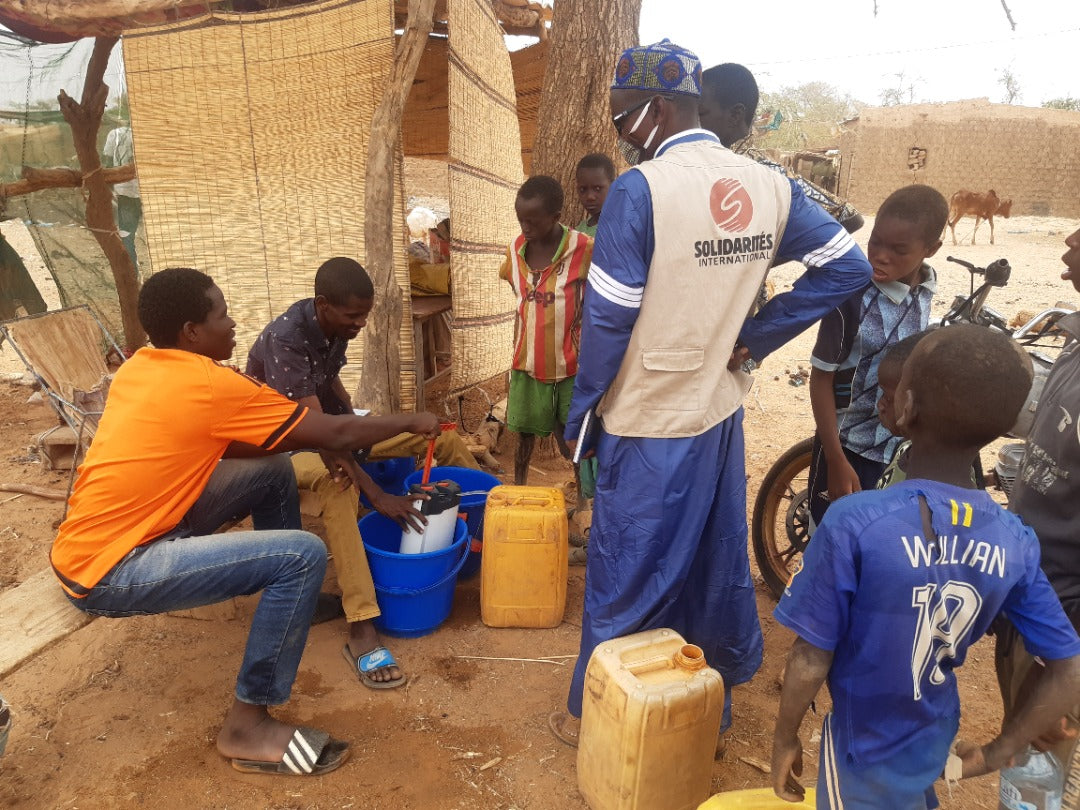
SOLIDARITÉS INTERNATIONAL
BLOCUS AND HYDRITICAL STRESS IN DJIBO
Deployment of 805 ORISA® water purifiers in response to the conflict in Burkina Faso, where water networks were sabotaged beyond repair, water points were inaccessible and emergency water treatment systems could not be used.
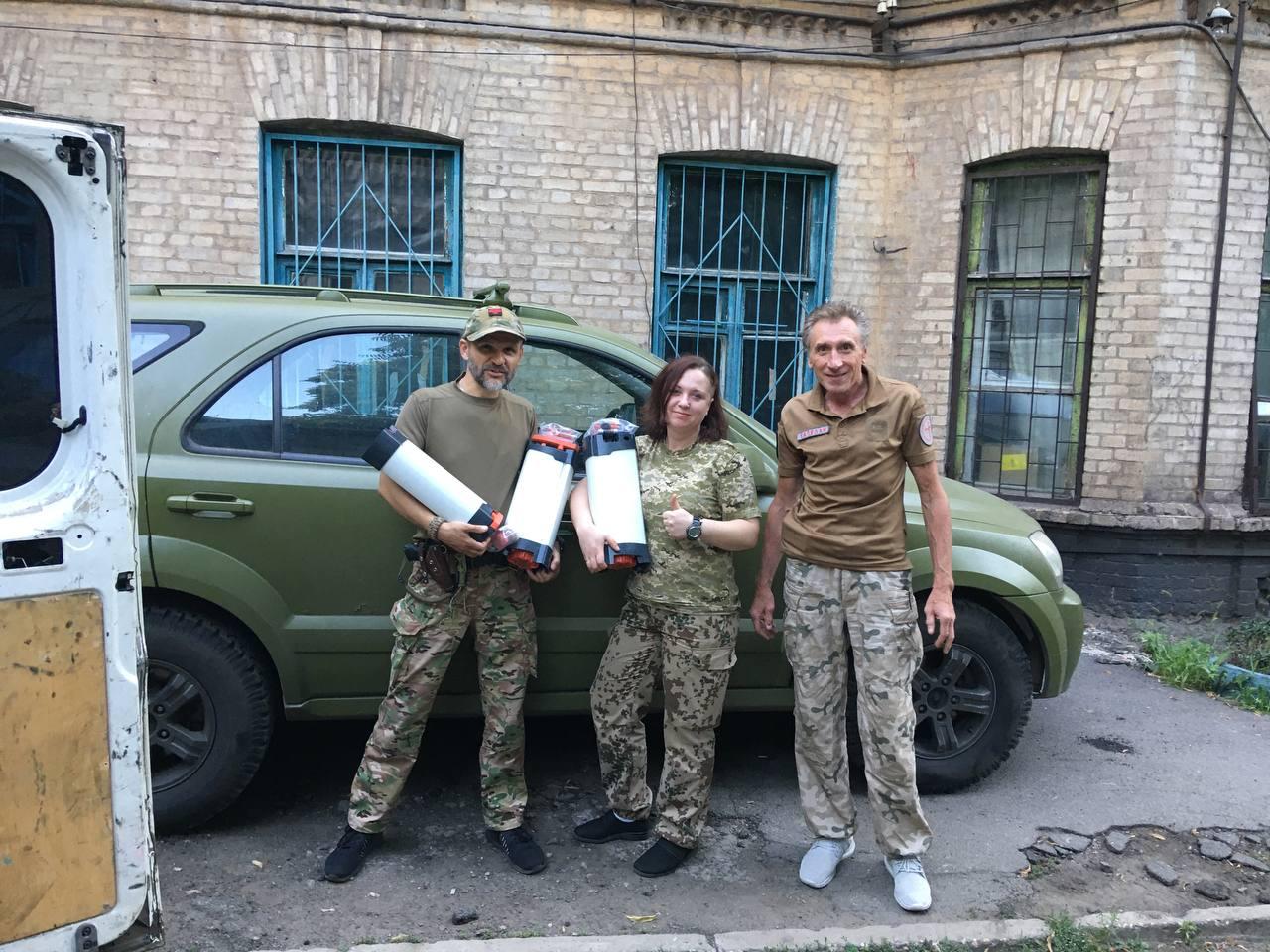
MINISTRY OF EUROPE AND FOREIGN AFFAIRS OF FRANCE
CONTINGENCY STOCK DEPLOYED IN UKRAINE
Solidarity operation on the initiative of the French government, which had a contingency stock of 405 ORISA® water purifiers deployed following the destruction of the Kakhovka dam during the Russian-Ukrainian war.

DEPLOYING ORISA®
Water is the target of covetousness in conflict situations, which is why it is important to have alternative solutions for supplying drinking water to forced and displaced persons.
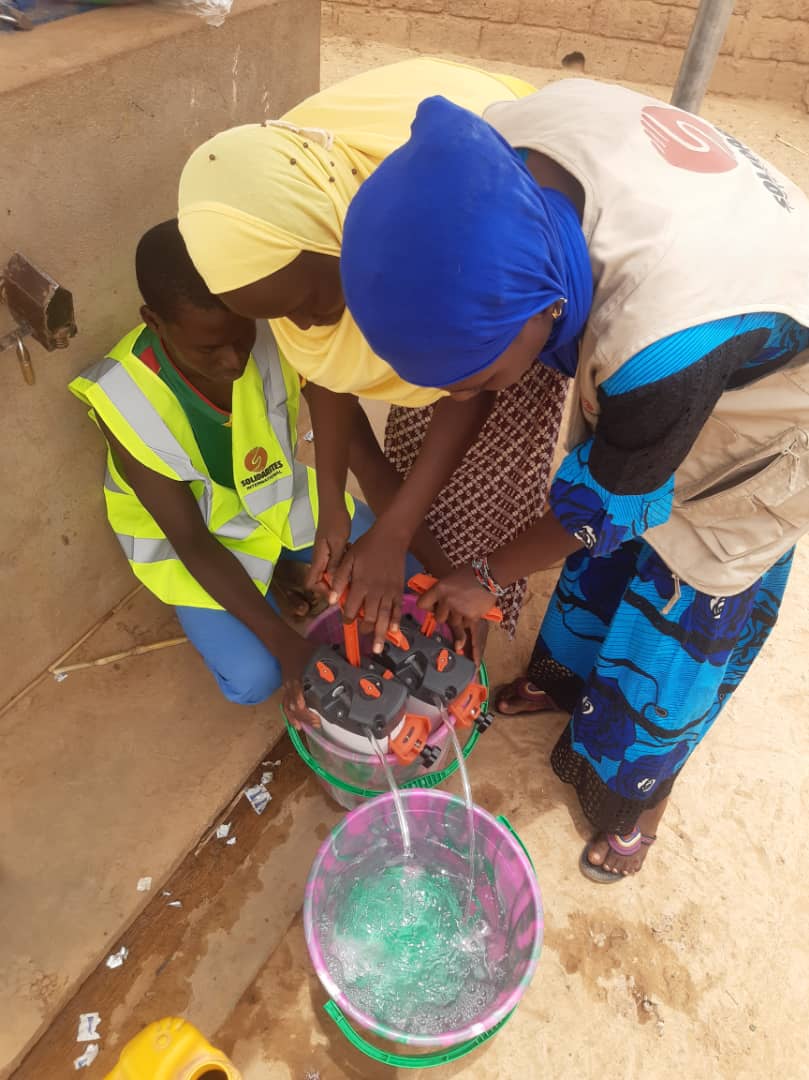
A formidable solution for water production in conflict situations
Ultrafiltration is emerging as an effective solution for treating water in areas affected by conflict. This method can be deployed either in the home, particularly when receiving displaced families in host areas, thereby promoting cohabitation by sharing a purifier, or in community water collection points via filtration points.
The ORISA® purifier stands out for its compactness and durability. This feature considerably reduces the logistical challenges for beneficiaries and NGOs. Once in the field, whether transported by truck, plane or helicopter, it simplifies access to a water source to be filtered. This represents a more practical solution than using tankers to transport treated and chlorinated water, or regularly importing bottled or sachet water.
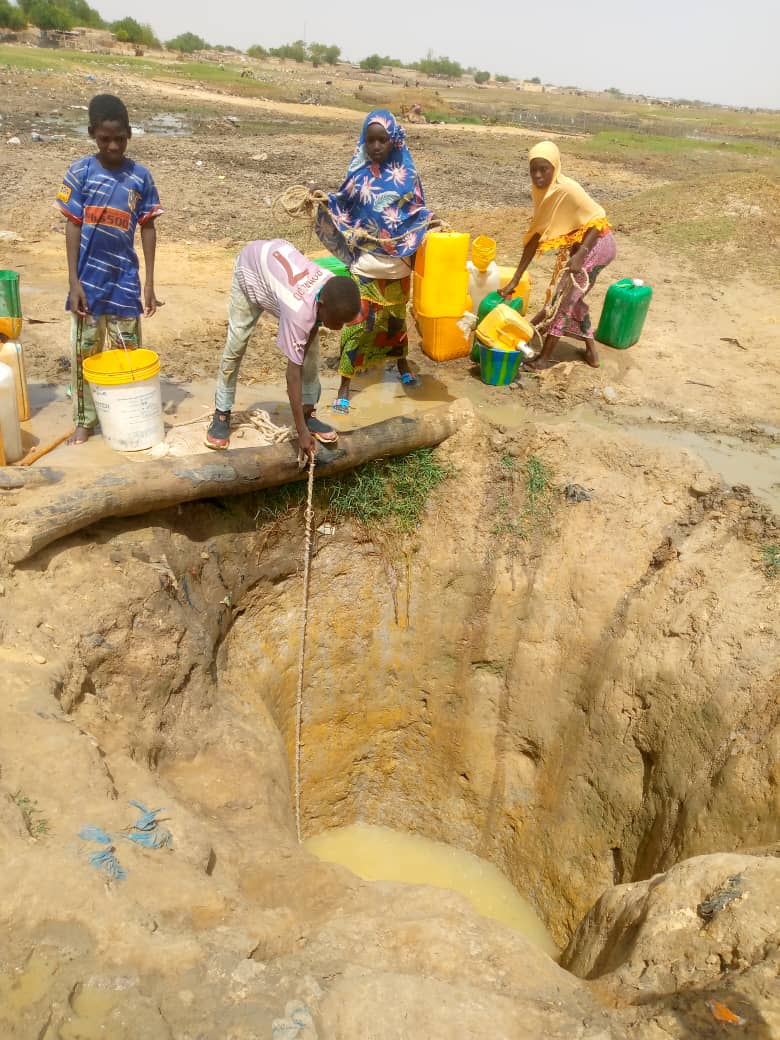
A sustainable approach to self-sufficiency
In all the evaluations carried out, the use of the ORISA® purifier proved to be a cost-effective option compared with traditional source filtration methods. What's more, this solution offers additional protection against the risk of viral diseases. By distributing this purifier to families, we also ensure continued access to safe, treated water once they return home. This is particularly beneficial in contexts where access to water may have deteriorated, providing sustainable support beyond the refugee camp.